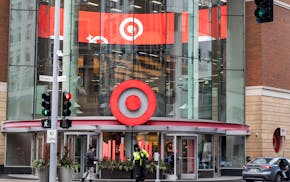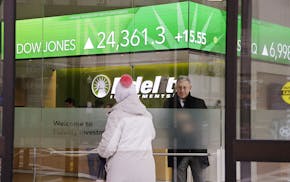We love our collie. But thank God that I am not as clumsy as Lassie's young owner Timmy.
If I fell into a lake or quicksand, our dog would not run and save me like the imperturbable Lassie.
I see many people counting on a Lassie-like save for their financial planning. Folks, don't be counting on a dog hero because only you can pull yourself out of the proverbial well.
The two wells we often see in which clients get stuck are fear and greed.
When the markets are going up, greed makes it difficult to sit on cash — especially when cash is earning virtually nothing.
But you need two things to make investments work — time and compound interest. The stock market goes up over time because the economy grows over time.
But markets don't go straight up. If there was no risk in owning stocks, then they would provide predictable, and hence lower, returns. In environments like the current one, people discount the risk of stocks and therefore disregard when they need their money. Money that is going to be spent in the next two years should be saved, not invested.
On the fear side, people who are a bit anxious disconnect their long-term time frame with market valuations. Even if you are retiring in the next couple of years, your money needs to last at least through your life expectancy — and longer if you wish to provide a legacy.
Getting too conservative too early does two bad things: it lowers the amount you can spend from your portfolio to enjoy the retirement you desire and it prevents your income from increasing as inflation makes a dollar tomorrow buy less than one today.
For a balanced approach, set aside at least two years of your portfolio spending in cash and develop an appropriate asset allocation beyond that. If you are trying to spend roughly 4% of your portfolio value each year, you can have at least 70% of the rest of your money invested in stocks, with 30% in bonds.
If the markets tank, you would first spend your cash, then your bonds — in an apocalyptic scenario, that is over nine years of spending.
If you are concerned about current valuations, then set aside another year of cash. Spending first your cash and bonds automatically makes you more invested in stocks when the markets have fallen; rebalancing and raising cash when the markets are going up insures that you are not overinvested if things drop.
Lassie can't save you from fear or greed, so save yourself.
Ross Levin (ross@accredited.com) is a founding principal and president of Accredited Investors Inc., Edina.

Ramstad: Minnesota's big businesses are in crisis with a common problem

'Brady Bunch'-style split-level homes enjoying a revival in Minnesota — with a twist

Now is the time to invest in bonds, with yields too good to ignore

Don't consider just your conflicts of interest. Be wary of your advisors', too
